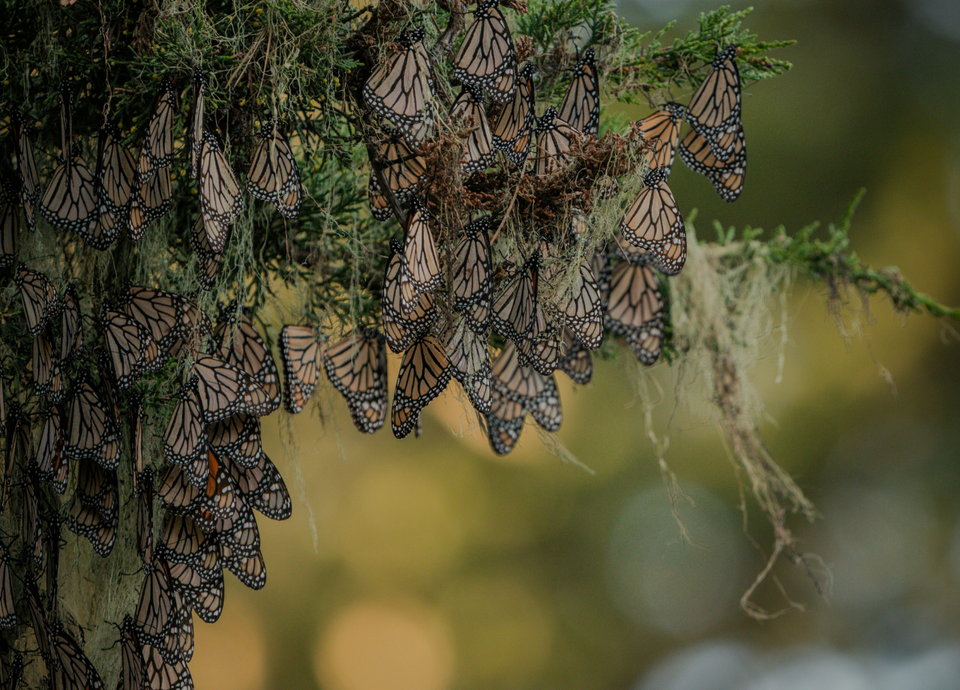Undomesticated: Living By Nature's Laws in a World Built to Break Them

The river doesn't apologize for its pace. The oak doesn't justify its seasons. The wolf doesn't measure its worth in productivity metrics or quarterly goals.
And neither should you.
Long before spreadsheets and schedules, before markets and mortgages, before we learned to mistake exhaustion for virtue and scarcity for motivation, our bodies knew a different rhythm. Our ancestors lived by laws that were more ancient and honest than anything written in corporate handbooks or self-help manifestos.
They lived by nature's laws — not as romanticized ideals, but as practical, bone-deep wisdom about what makes a life sustainable, meaningful, and true.
The Forgotten Wisdom of Natural Law
Nature doesn't operate on hustle culture, worship at the altar of perpetual growth, confuse worth with output, or believe in the myth of the rugged individual, standing alone against the elements.
Here's what nature actually shows us:
Nothing healthy grows indefinitely. Trees reach their right size, rivers find their right banks, and animals take what they need and leave the rest. The myth of endless expansion — of economies, of consumption, of ambition — is fundamentally incompatible with how living systems actually work. In nature, sustainability isn't a buzzword; it's survival.
Everything moves in cycles, not straight lines. Progress isn't linear, and time isn't a commodity to be "spent" or "saved." The natural world breathes in rhythm: expansion and contraction, abundance and scarcity, growth and rest. When we deny these cycles, forcing perpetual productivity regardless of season, we don't transcend nature, we break ourselves against it.
Interdependence is strength, not weakness. The lone wolf isn't a hero in the ecosystem; it's usually dying. Nature thrives through complex relationships, mutual support, and diversity of function. The myth of self-sufficiency - that needing others is somehow a failure - runs directly counter to how resilient living systems are structured.
Rest is productive. Winter isn't lazy, the fallow field isn't failing, the sleeping bear isn't procrastinating. In nature, rest isn't what happens when everything important is done. Rest is the important thing; the essential phase that makes all growth possible.
Diversity creates resilience. Monocultures are vulnerable; diverse ecosystems endure. Nature doesn't standardize, optimize, or scale. It experiments, adapts, and finds strength in variety. The push toward uniformity of thought, appearance, and approach weakens rather than strengthens our collective capacity.
Death is not failure but transformation. Nothing in nature is wasted. What falls becomes the foundation for what rises. Endings aren't tragedies to be avoided at all costs, but necessary transitions that create space for renewal. The desperate clinging to what's finished - relationships, careers, identities - prevents what's next from taking root.
How the Machine Breaks Natural Law
Our modern-day systems – economic, political, and social (often referred to here collectively as 'the Machine') – don't just ignore these natural principles; they actively work against them. Creating a fundamental dissonance between how we're taught to live and how living things actually thrive in natural ecosystems.
The empire mythology tells us:
- Growth must be constant and unlimited
- Productivity is the measure of human worth
- Independence is the highest virtue
- Rest is laziness; exhaustion is commitment
- Standardization creates efficiency
- Death (of ideas, identities, ways of being) should be avoided at all costs
No wonder we're exhausted and lonely. No wonder we stand at the summits we were told to climb and find the view hollow. We've been sold maps that run contrary to the actual territory of being alive.
This isn't abstract philosophy, it's the practical reality of bodies breaking under impossible demands. Souls withering from disconnection. A planet groaning beneath extraction disguised as progress.
The executive who hasn't slept properly in years, whose body communicates through migraines and acid reflux what their mind won't let them admit: this pace is unsustainable.
The entrepreneur who built a "freedom business" that now feels like a digital cage, who finds themselves performing authenticity rather than living it: this isn't aligned with my truth.
The parent who shuttles between obligations, drowning in efficiency apps and productivity hacks, who can't remember the last time they looked at the sky without checking the time: I wasn't meant to live this fractured.
The artist who turned their sacred expression into content, who creates on algorithm-friendly schedules rather than when the muse speaks: my gift is becoming a burden.
The truth is that no amount of life hacking, productivity optimization, or mindset shifting can resolve the fundamental contradiction between living in alignment with natural law and participating in systems designed to break it.
Living by Nature's Laws Within Broken Systems
So, where does that leave us? Most of us can't simply walk away from the systems we're embedded in. We have families to feed, bills to pay, and responsibilities we've committed to. And yet, continuing to violate natural law isn't sustainable for our bodies, our communities, or our planet.
This is the beautiful, terrible tension we're called to hold: how to live by nature's wisdom while still navigating the unnatural constraints of the world as it currently exists.
Here's what I've learned we can do to walk this edge:
Reclaim your relationship with time. You may not be able to completely escape the clock, but you can stop internalizing its tyranny. Practice spending at least some time each day according to your body's innate rhythm rather than external schedules. Notice the difference between clock time (measured, commodified) and natural time (experienced, flowing). Become aware of the false micro and macro timelines you've opted into, which may not necessarily be yours.
Honor your own seasons. Name where you are in your personal cycle: growing, harvesting, composting, or resting. Stop expecting yourself to be perpetually in production mode. Permit yourself to lie fallow when that's what your system needs. This doesn't mean abandoning responsibility, but rather respecting the natural constraints of your energy.
Build interdependence intentionally. We can't return to village life overnight, but we can actively resist the myth that asking for help is failure. Create small systems of mutual support, share resources, and practice receiving as much as giving. Remember that resilience comes through connection, not self-sufficiency.
Create boundaries around rest. Sleep isn't a luxury or a sign of weakness, it's a biological necessity and a time of essential processing; protect it accordingly. The same goes for other forms of rest, mental, emotional, and creative. These aren't rewards for productivity; they're prerequisites for sustainable living.
Diversify your measures of worth. Actively practice valuing what the market doesn't price: presence, wisdom, care, beauty, joy, and relationship. Notice how much of what makes life meaningful exists completely outside economic metrics. Resist the colonization of your self-worth by productivity measures.
Welcome small deaths. Practice letting identities, beliefs, and ways of being complete their natural cycle rather than propping them up past their time. The ability to compost what's finished and to release rather than cling creates essential space for what's wanting to emerge.
Find your just-right size. Question the pressure for endless expansion in your work, reach, and impact. What if success isn't about getting ever bigger but finding the scale at which you can operate with integrity and joy? What if enough isn't a consolation prize but the actual goal?
Return to your senses. The body is our primary instrument for experiencing natural law. Ground yourself in sensory reality regularly; feel the sun, listen to birds, taste food slowly, touch soil, smell rain coming. These aren't indulgences; they're how we remember our place in the web of life.
Remembering What Your Bones Already Know
Living by natural law isn't about developing new skills or adopting better habits, it's about remembering what your body already knows. It's about unlearning the myth that human worth can be measured in output, and reclaiming your wildness in a world that profits from your domestication.
This isn't comfortable work. We're unpicking the stitches of a worldview sewn into our skin. We're questioning the water we've been swimming in. We're deconstructing the house we've built our identity within.
But on the other side of this unraveling lies a life that feels like coming home... to your body, to your truest desires, to the wild earth that's been waiting for you to remember you belong to it.
This isn't about escaping reality, but about living within it more honestly. Not pretending we can completely extract ourselves from broken systems, but refusing to let those systems define the entirety of how we experience being alive.
You can't completely opt out of capitalism or manifest your way beyond structural constraints, but you can stop confusing system values with natural laws. You can practice living by a different rhythm, even within limited zones of freedom. You can remember what it means to be a wild thing temporarily wearing business casual.
In the spaces between obligations, in the quiet moments before dawn, in the small choices that may seem insignificant but accumulate into a life — this is where we begin. Not with grand gestures of rebellion, but with humble acts of remembering. Not with perfect purity, but with messy integrity.
The river doesn't apologize for its pace. The oak doesn't justify its seasons. The wolf doesn't measure its worth in productivity metrics or quarterly goals.
And neither should you.
The wild in me recognizes the wild in you. It's never too late to remember.
Chandra Nicole


Comments ()